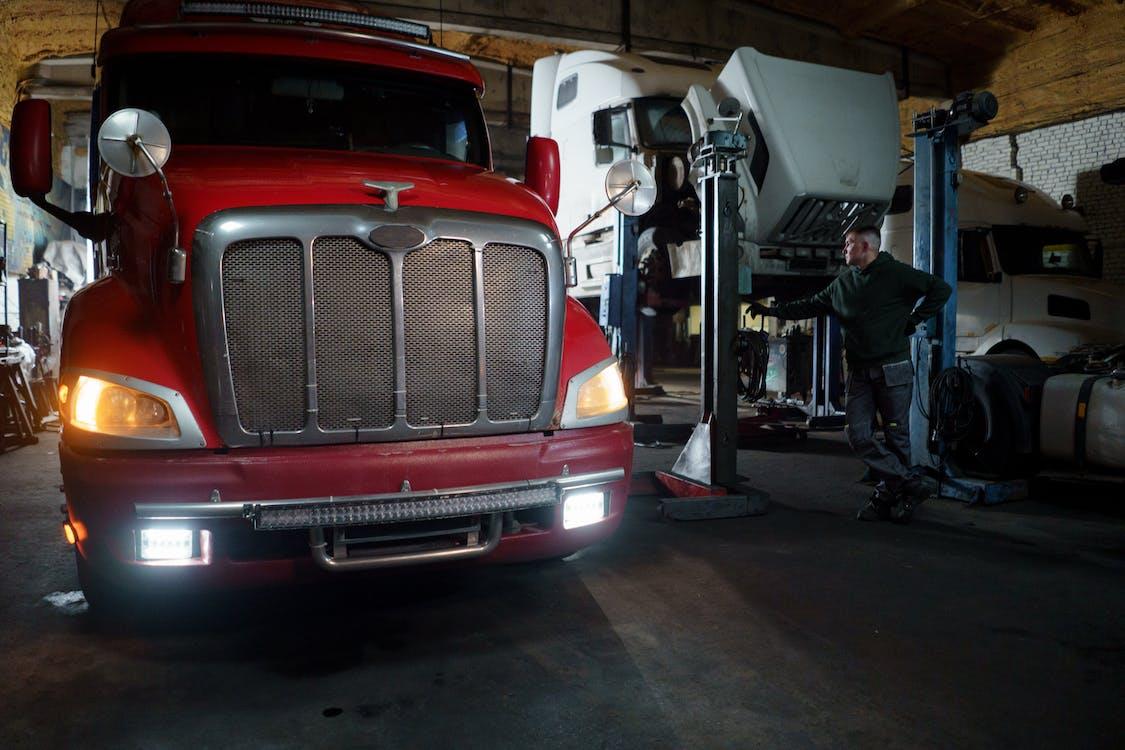As we delve into the dynamics of the worldwide transportation and logistics services arena, it's evident that this sector is poised for remarkable growth. Projections indicate a substantial expansion, with the market size expected to surge from $1,211.06 billion in 2022 to a staggering $1,804.49 billion by 2029. Such a meteoric rise underscores the competitiveness of the industry and highlights the thriving presence of technology as a driving force behind its evolution.
Technology has created profound change. From autonomous vehicles and drones to real-time tracking systems and artificial intelligence, technology has unlocked an exciting era of change that cannot be denied.
This informative blog post will examine the many ways technology is revolutionizing and reshaping the transportation and logistics industry, improving efficiency while simultaneously cutting costs and strengthening safety measures in ways once considered insurmountable.
Transportation Management
Technology has taken on an ever-greater significance within the transportation and logistics sector. One key driver of this transformation is a transportation management platform—an innovative solution that integrates various technologies to streamline operations and maximize efficiency.
For instance, if your business operates with a fleet of vehicles, fleet management software can give you access to real-time insights about vehicle performance, route optimization, fuel consumption, and maintenance scheduling.
Businesses utilizing this technology gain real-time insight, which allows them to cut costs, increase safety, and boost overall productivity. Goods arrive on time while simultaneously helping reduce carbon emissions, keeping with an industry trend toward sustainability.
These software solutions will continue to play an essential role in driving forward progress and innovation within transportation and logistics.
Real-Time Tracking and Visibility
Real-time tracking technology has become an integral component of the logistics industry. GPS and advanced tracking software offer real-time updates on the cargo's location and condition, offering real-time insight. This level of visibility allows for more efficient planning and proactive issue resolution.
IoT (Internet of Things) plays an essential role in real-time tracking. Sensors installed on cargo and vehicles provide data on factors like temperature, humidity, and shock as well as the quality and safety of goods in transit. Should anything diverge from desirable conditions, alerts can be sent directly to logistics managers so they can immediately take corrective actions if needed.
Artificial Intelligence and Machine Learning
Artificial intelligence (AI) and machine learning are being used to optimize logistics operations in several ways. Predictive analytics can forecast demand and help companies adjust their inventory levels accordingly, reducing holding costs and minimizing stockouts. Machine learning algorithms can optimize routes, leading to fuel savings and faster deliveries.
AI is also making its mark in warehouse management. Automated robots powered by AI can efficiently pick, pack, and move products, reducing the need for human intervention and enhancing speed and precision. Furthermore, chatbots and virtual assistants powered by AI are improving customer service and order processing.
Big Data and Predictive Analytics
Transportation and logistics industries generate vast quantities of data, which when harnessed can result in significant improvements. Big data analytics can assist in recognizing trends, optimizing supply chains, and improving decision-making, with predictive analytics playing an especially pivotal role in cutting transportation costs, optimizing routes, and increasing overall efficiency.
For example, by analyzing historical data on shipping routes and traffic patterns, companies can predict delays and plan alternative routes, ultimately reducing transit times. Predictive maintenance is another area where data analytics is making a difference. By analyzing equipment data, companies can anticipate when vehicles or machinery will require maintenance, minimizing downtime and maintenance costs.
Electric and Green Technologies
Environmental concerns are pushing the transportation and logistics industry toward adopting greener technologies. Electric vehicles (EVs) are gaining momentum as they offer a more sustainable alternative to traditional fuel-powered vehicles. Companies like Tesla, Rivian, and more established automakers are developing electric delivery vans and trucks to reduce carbon emissions.

Blockchain for Supply Chain Management
Blockchain technology is revolutionizing supply chain management by offering a secure and transparent ledger to record transactions. This ensures the integrity of supply chains while also helping reduce fraud and errors, making tracing products from origin to destination much simpler.
Blockchain can play an invaluable role in verifying the authenticity and provenance of goods, particularly in industries like food and pharmaceuticals, where monitoring the source and handling of products are essential to safety and compliance.
3D Printing and On-Demand Manufacturing
Innovations like 3D printing are altering the traditional logistics model. Instead of shipping products from distant factories, companies are beginning to manufacture goods on-site or closer to the end customer. This reduces transportation costs, lead times, and the carbon footprint of shipping.
On-demand manufacturing also allows for more personalized and customized products, as businesses can produce items in smaller batches without the need for extensive warehousing. Companies are adept at swiftly responding to changes in customer demand or design modifications.
In Closing
Transportation and logistics industries are currently experiencing an unprecedented technological revolution that is transforming how goods move from their source to their destination. From real-time tracking and artificial intelligence to green technologies, blockchain, and 3D printing, technology innovations are revolutionizing this sector and improving efficiency, reducing costs, and increasing sustainability. Not to mention driving economic growth, reducing environmental impact reduction, improving customer experiences, and enhancing the customer journey experience. As these innovations advance further into reality, future possibilities for transport and logistics advance as well.






